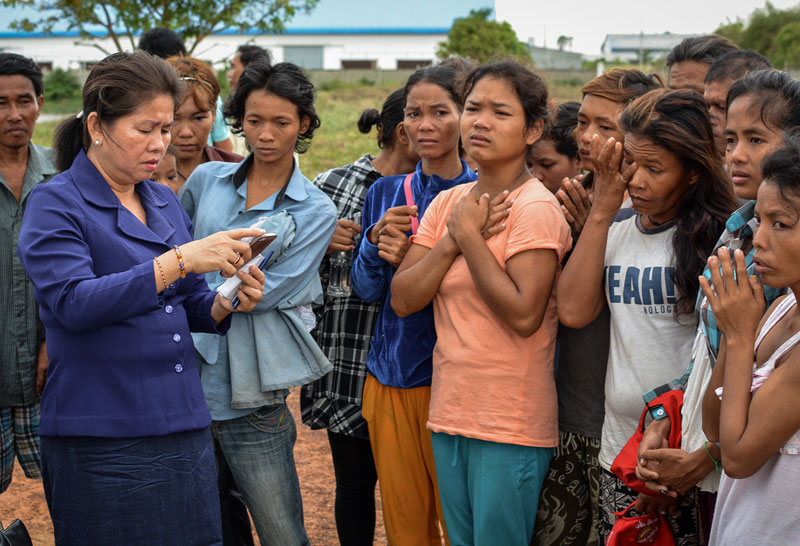Phnom Penh’s social affairs director on Tuesday admitted that the infamous Pur Senchey Vocational Training Center, better known as Prey Speu, was not equipped to care for the hundreds of mostly mentally ill vagrants held there during public events.
During a visit by CNRP and CPP lawmakers on the National Assembly’s health commission, municipal social affairs department director Sorn Sophal said that 90 percent of the people admitted to the center suffered from mental illness.

“We struggle to care for those with mental illnesses,” he said during a meeting with the lawmakers. “Our staff do not have expert skills to take care of the mentally ill.”
A roundup of vagrants before the state funeral of Chea Sim on June 20 sparked Tuesday’s visit to Prey Speu, where people are arbitrarily detained and abused, according to Human Rights Watch and local rights groups Licadho. Both have repeatedly called for the center’s closure.
Mr. Sophal said 315 people were admitted to the center between June 15 and July 7, joining the 46 already there. Most have since been released.
Mr. Sophal said the center had only five staff, none of whom are qualified to provide health services or mental health treatment, let alone vocational training. He denied claims of abuse.
“We just take care of them on humanitarian grounds; we cannot deal with their mental illnesses,” he said. “If [lawmakers] want us to take care of the mentally ill, please provide guidance.”
Mr. Sophal said there continued to be confusion over whether the responsibility for caring for mentally ill detainees lay with the Health Ministry or Social Affairs Ministry.
CNRP lawmaker Ke Sovannaroth, who chairs the National Assembly’s health commission, said she planned to settle the manner.
Ms. Sovannaroth, who has led previous visits to the center, also said that nothing had improved. “It still lacks working toilets, clean water and mosquito nets,” she said.
While the lawmakers toured the center Tuesday, many of the detainees—some of whom were caring for toddlers—pleaded for permission to leave, but were denied.
Thiv Hong, 57, said he was brought to the center last week because he was homeless, and claimed that staff members routinely beat the detainees, especially the mentally ill.
“They get it the worst,” he said. “They beat one man so bad last night, there was blood everywhere. They removed him before you all came so you did not see him.”
Mr. Hong said the detainees spend most of their time locked up, and were only allowed to roam the grounds during meal times, or to bathe in a pond that doubles as the center’s bathroom.
“When we’re locked in the rooms, we have to use buckets as toilets,” he said. “You can’t just leave—you have to escape.”
(Additional reporting by Alex Consiglio)



